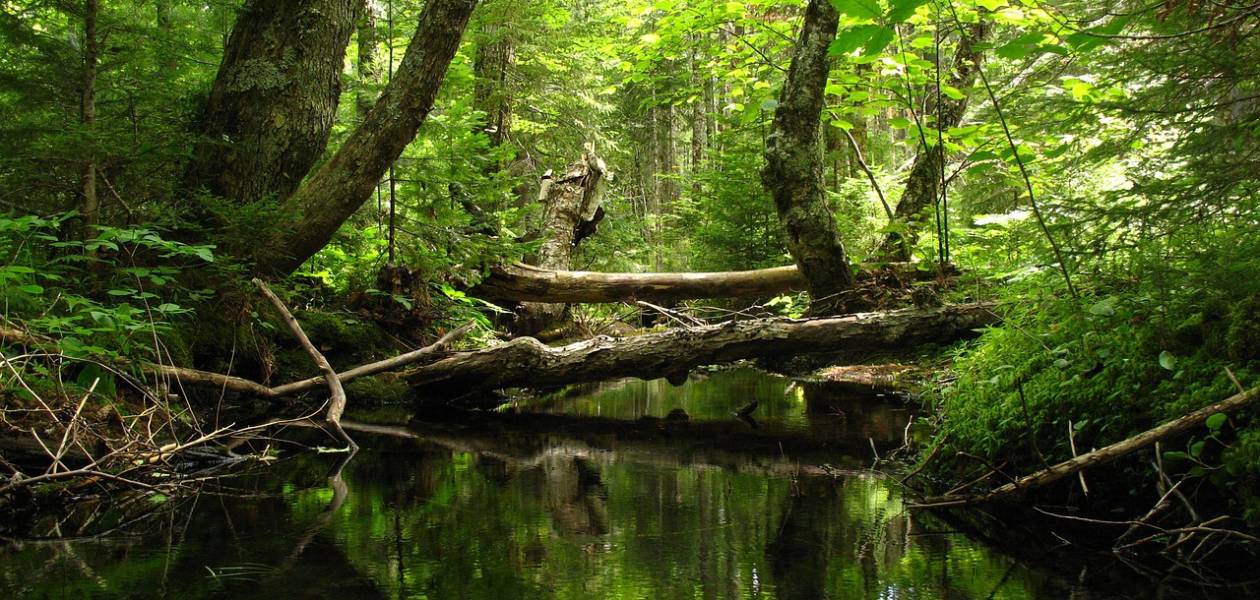
Despite global commitments to halt deforestation by 2030, only eight of the top 20 countries with highest rate of tropical deforestation have quantified targets on forests in their national climate action plans, also known as Nationally Determined Contributions (NDCs). This is one of the key findings of the UN-REDD report “Raising ambition, accelerating action: Towards enhanced Nationally Determined Contributions for forests," published today as countries gather for the Bonn Climate Change Conference.
The report reveals a major gap in forest protection, management and restoration in current NDCs, which outline plans to adapt to and mitigate climate change. Analyzed by climate experts at UNEP, the report shows that current NDC pledges submitted between 2017–2023 do not meet the global ambition to halt and reverse deforestation by 2030. Forests play a key role in achieving the Paris Agreement on climate change, as they have the potential to contribute one-third of the emissions reductions required to close the 2030 mitigation gap.
While 11 of the NDCs contain quantified targets relating to afforestation and, reforestation, mitigating climate change requires reducing deforestation first, as it takes many years to capture the carbon lost through deforesting an equivalent area through afforestation and restoration.
To further harmonize national efforts, it is also crucial for NDCs to integrate existing national strategies to reduce emissions from deforestation and forest degradation, which 15 of the 20 countries have adopted.
Given the role of forests in regulating hydrological cycles, buffering temperature extremes, preventing extreme weather events, and protecting biodiversity and human health, the ambition to end deforestation is essential for humanity to avoid tremendous risks to us, our planet and the life it supports. Yet, the report released today shows that global deforestation rates continued to increase, notwithstanding a recent decline in Brazil.
“After the 2020 goal by world leaders to halve forest loss was not met, we must ensure that the 2030 goal doesn’t meet the same fate,” said Dechen Tsering, Acting Director of UNEP’s Climate Division. “Climate action plans, due in 2025, need to have ambitious, consistent, detailed, targeted, and actionable goals for forest conservation, restoration and sustainable use. This includes building on existing national environmental policies, while enhancing support for Indigenous Peoples and local communities, who are the frontline stewards of forests .”
The report calls for urgent international collaboration to enhance NDC ambition. As countries prepare for the submission of the next round of NDCs for COP30 — known as NDCs 3.0, with a timeframe extending to 2035 — the report urges countries, especially those with extensive forest cover, to include concrete, measurable targets on forests in their revised NDCs.
Increased NDC ambition must be accompanied by strong and immediate action. Predictable financial support at scale for forest-rich countries will be needed to take these steps.
About UN-REDD
The UN-REDD Programme is the flagship UN knowledge and advisory partnership on forests and climate to reduce forest emissions and enhance forest carbon stocks. It is the largest international provider of REDD+ assistance, supporting its 65 partner countries to protect their forests and achieve their climate and sustainable development goals.
Sources :
- UNEP - United Nations Environment Programme
Posted on 2024-06-15 17:08








Comments